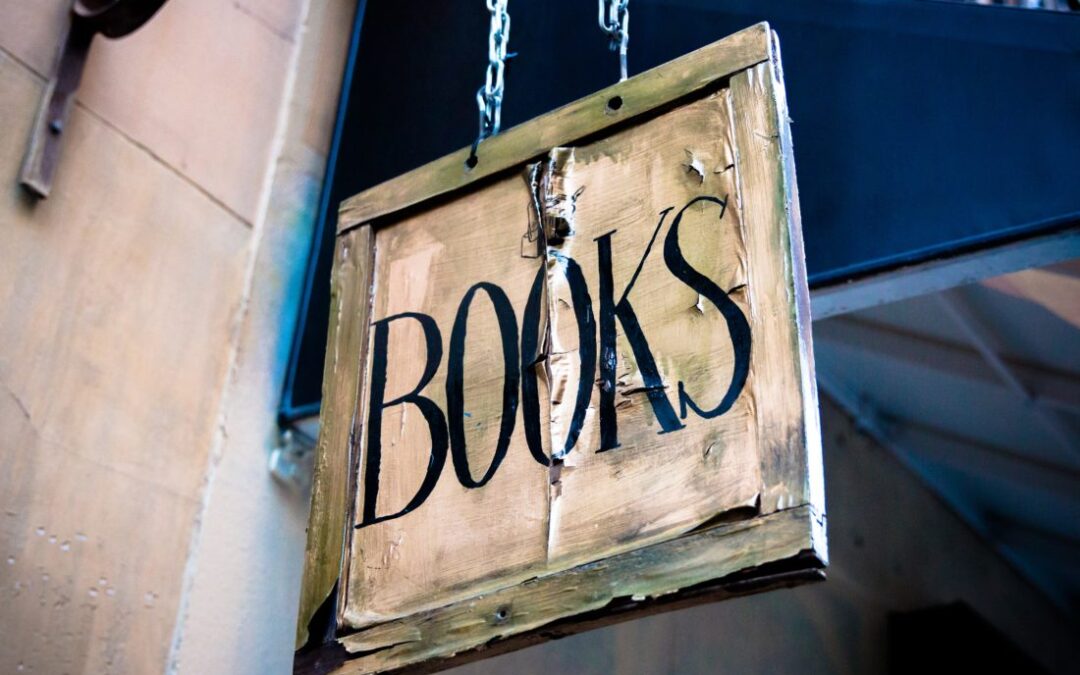Social awareness empowers individuals, leaders, and teams to better navigate, to better respond to, and to capitalize on shyfting social dynamics. Understanding social dynamics through a socially aware lens is the most important asset you can develop with your team to focus on success now and in the future.
Everything we do at work and in life centers around people. It doesn’t matter if you are a stockbroker, a real estate developer, a doctor, a lawyer, a teacher, a homemaker or an entrepreneur…. success depends on understanding shyfting social dynamics.
5 Great Reads to Help Expand your Lens and Build Social Awareness
She Said
Breaking the Sexual Harassment Story That Helped Ignite a Movement
By Jodi Kantor and Megan Twohey
This book dives into a crisis that is plaguing our society – the growing disagreement on what defines truth and who has the power to define what is appropriate workplace behavior. In October 2017, a riptide ripped through mass media, and ideas on workplace behavior shyfted almost overnight. It was as if a switch was flipped and a spotlight illuminated the depth and breadth of sexual harassment and exploitation in the workforce.
Conversations about harassment were not new in 2017, but something had shyfted – the momentum of a movement was sparked. It was a perfect storm – a number of significant people (based on the status and prestige of their socially defined roles—Hollywood actresses), encouraged by the investigative work of Jodi Kantor and Megan Twohey, lent the power of their voices and credibility to a story that inspired a social and mass media firestorm. People everywhere started using Tarana Burke’s 2007 #MeToo movement hashtag and it exploded. The discontent of women that had been harassed hit a tipping point which has changed how we talk and think about what is defined as appropriate workplace behavior in just the past two years.
The reality of this shyft is here to stay – don’t get caught off-guard. What goes on outside the four-walls of our organizations will impact what is going on inside of them.
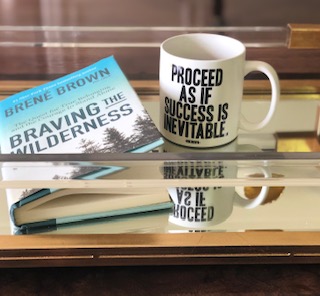
Braving the Wilderness
The Quest for True Belonging and the Courage to Stand Alone
Published by Penguin Random House
The discipline of sociology has been studying the importance of social solidarity, group cohesiveness, and feeling like you are part of something larger than yourself for over one hundred and thirty years. As sociologists, we study the larger patterns that go beyond one individual’s lived experiences. Our sense of belonging and our sense of self does not develop in a vacuum; it evolves in a social, historical, and cultural context which shapes how we view ourselves and how we think about others.
Brene’ Brown does a phenomenal job researching and sharing the realities of individual experience and the need to connect with others. It is reflective and challenges the reader to find oneself and be comfortable living in one’s own skin.
It takes courage to challenge the status quo. It takes courage to make a difference and to be willing to stand alone. Brown sheds light on the power of embracing oneself and all one has to offer. We can truly belong once we embrace who we really are and what we truly are meant to do. But the most important thing to remember is that you are not alone – many of us are searching for our way to make a difference, to embrace who we really are, and to ‘brave the wilderness.’
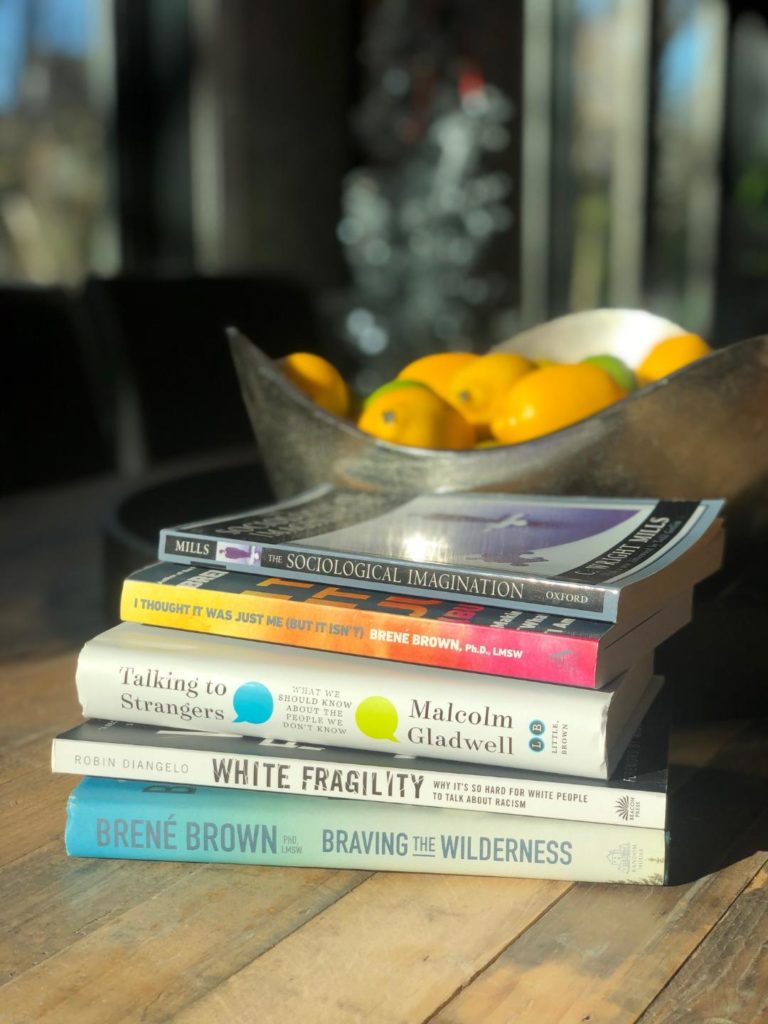
Talking to Strangers
What We Should Know About the People That We Don’t Know
Published by Little, Brown, and Company
Gladwell offers a critical look at the limits of individual perspective and lived experiences on the evaluation of information and stories that we hear about or see in the news in a very relatable way. For example, when we interpret events that we read about in the headlines, we interpret them through our own limited lens. We don’t always take the time to try to determine which side of the story is being told and from whose perspective.
Malcolm Gladwell helps his readers see events through an alternative lens. Learning to use a critical lens when evaluating information is an important social awareness skill – it allows you to see connections that many people miss.
(Check out C. Wright Mill’s Sociological Imagination for a more theoretical look at the importance of developing empathy with a sociological lens. Being able to place oneself in someone else’s shoes before placing judgement and making decisions is a key 21st century social awareness skill.)
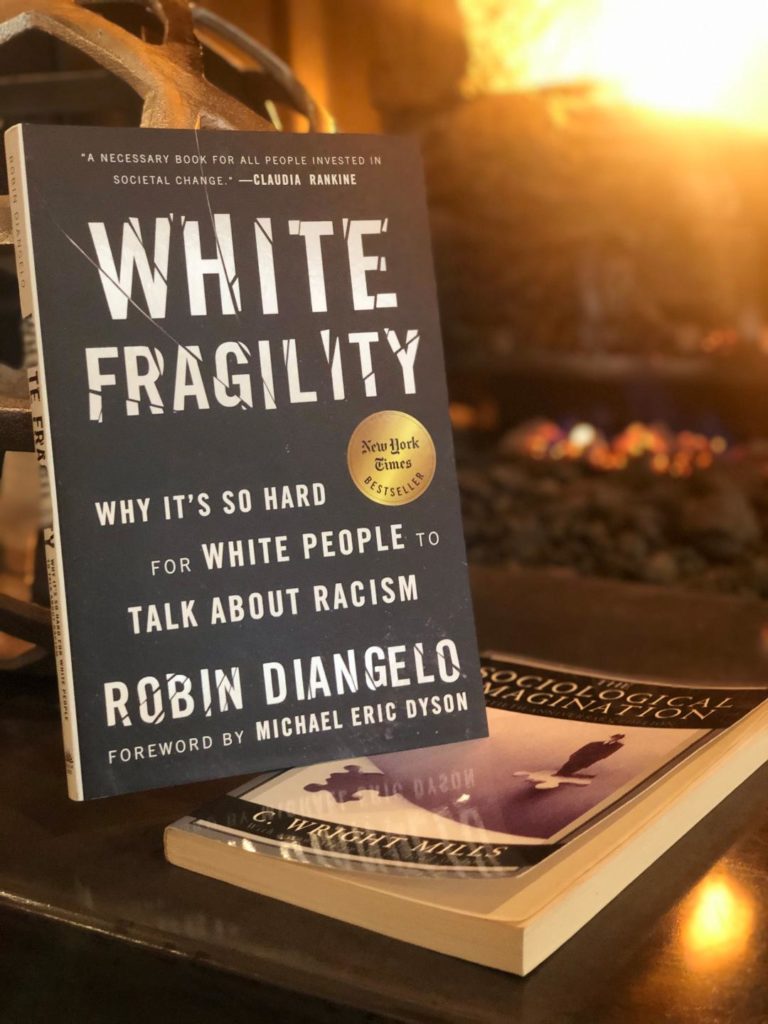
White Fragility
Why It is So Hard for White People to Talk About Racism
Published by Beacon Press
Many people wonder why we are still talking about race today. They reference the fact that It has been illegal to discriminate on the basis of race since the Civil Rights Act of 1964 – they advocate for a ‘colorblind’ society. But what so many don’t realize, or don’t want to realize, is that race and ethnicity still play a significant role in the shaping of our culture.
The concepts in DiAngelo’s book about privilege and inequality are important – to move beyond racism, we must be willing to talk about the systemic inequalities that are institutionalized in our society. They are often taken for granted as the norm, natural, or inevitable unless otherwise pointed out and called into question.
In order to talk about the realities of today, we must also talk about the social, cultural, and historical context that got us here. One of the most important concepts that has shaped our current reality is the one of race and ethnicity. Most people haven’t really stopped to think about the implications of the social construction of the meaning of race. It, along with ethnicity, were and still are used to create unequal access to opportunities within society. DiAngelo gives language and context to illuminate the significance that the definition of race still plays today.
I Thought It Was Just Me (But It Isn’t)
Women Reclaiming Power and Courage in a Culture of Shame
Published by Penguin Random House
One of the greatest challenges that we all face as human beings is the feeling of loneliness. Today, more than ever, these feelings seem to be on the forefront of people’s minds. Teenagers are the most anxious and depressed on record. Adults are looking for more meaning and purpose at work. We desperately want to seek out opportunities and people that help us feel connected (even though we are theoretically more connected than ever with the internet and social media). But connecting with others, on an authentic level, isn’t easy.
Our sense of self, our sense of mattering and our sense of mastery all develop within a social, historical, and cultural context. This work, from a non-sociological perspective, focuses on building connection, embracing who we are, and living an authentic imperfect life.
To build empathy, understanding, and social awareness, we each must seek to develop an understanding of why we each think, act, and respond the way that we do in different social situations. We each can read the same book, watch the same movie, or listen to the same speech and take away completely different messages. Our lens, our histories, and our biographies shape how we interpret the world around us. Brown’s book provides one way to start thinking about the significance of your lens, your perceptions, and your mindset.
Whenever you find yourself on the side of the majority, it is time to pause and reflect.
Mark Twain, Notebook 1904
It is time to shyft the status quo.
Join me to build social awareness and learn to navigate shyfting social dynamics. It is time to shyft the status quo. It is time to embrace and successfully navigate shyfting social dynamics.
As leaders, we possess the intellectual capacity, expertise, and innovative capabilities to truly make the world a better place. It is our responsibility to be socially aware, to create environments where everyone can thrive, to lead our organizations into the future, and to build up the communities in which we do business.
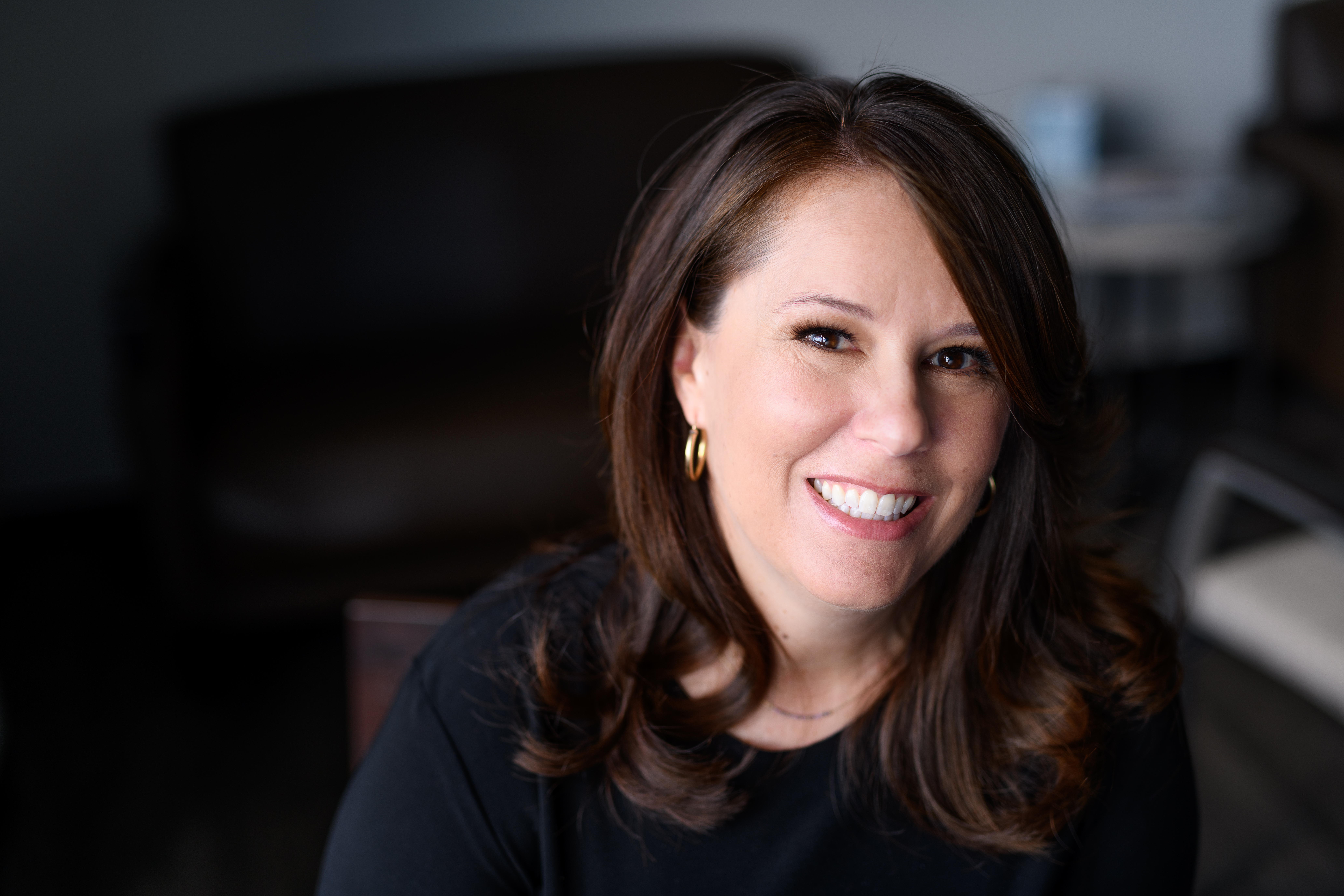
By Kristin Heck Sajadi, Founder and CEO at Shyft Strategies, LLC Sajadi is a sociologist, entrepreneur and developer of the Shyft5 TM program – helping individuals and organizations build social awareness as a business asset to shyft the status quo.
Shyft5 TM program tackles challenges and builds awareness—the benchmark for effective communication, productive interaction, and thriving cultures in today’s organizations.
At Shyft Strategies, we help you uncover the obstacles and barriers preventing you from reaching your goals. We help you navigate today’s new business and human capital reality. The first step to moving forward is increasing awareness. Awareness isn’t just learning a new fact or statistic. It is connecting the dots between what is and why, so that we can consciously and cognitively shyft to what can be and how.

